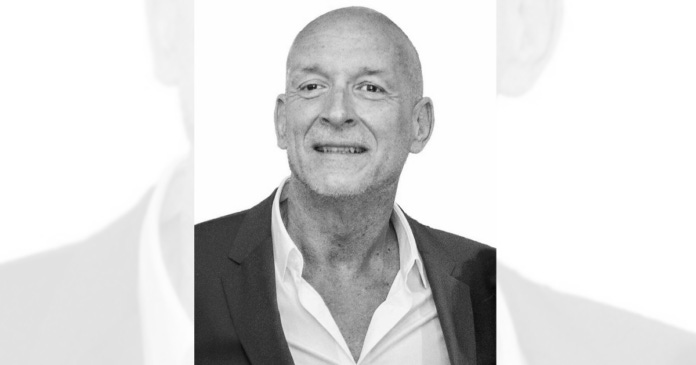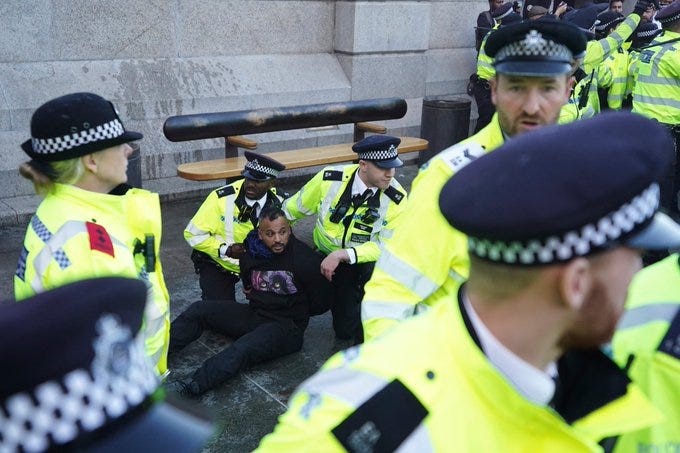Richard Bilkszto, principal bullied in DEI session, honoured at Toronto memorial
For True North, Sue-Ann Levy writes about the memorial of Richard Bilkszto, a beloved Toronto educator and former FAIR Canada chapter leader, who tragically died by suicide in July.
He was an educator who promoted “strength rather than victimhood,” who “dared to question” and who viewed “obstacles as opportunities,” said [Toronto District School Board teacher Natasha Mansouri], one of a half a dozen trustees, teachers and community members who gave touching tributes to him...
Teacher Jon Roberts, who was involved with Bilkszto in a chapter of the Foundation Against Intolerance and Racism (FAIR), said as a gay man who came of age in the 80s, Bilkszto knew about bigotry and hatred. But he never insisted the intolerant get with the program or else, said Roberts.“He was calm and caring…a beacon of positive change,” he said.
I was a DEI director — DEI drives campus antisemitism
For the New York Post, Dr. Tabia Lee writes about how, in her experience as DEI director at De Anza College, she observed discrimination against Jewish students and the intersection between the Critical Social Justice worldview and antisemitism.
"I was told in no uncertain terms that Jews are 'white oppressors' and our job as faculty and staff members was to 'decenter whiteness.'
I was astounded, but I shouldn't have been.
At its worst, DEI is built on the unshakable belief that the world is divided into two groups of people: the oppressors and the oppressed."
In the Israeli-Palestinian debate, you might be wrong. So be humble.
For The Washington Post, FAIR Advisor and Islamic Studies professor Shadi Hamid writes about the historical context of conflict in the Middle East and the need for intellectual humility, especially when discussing complex and contentious topics.
Morality cannot be situational. We are all products of structures beyond our control, but this does not mean we are prisoners to them. The oppressed cannot simply shift moral responsibility onto their oppressors and be done with it. However terrible their circumstances, individuals always retain the ability to make choices.
Let the Activists Have Their Loathsome Rallies
For The Atlantic, Thomas Chatterton Williams writes about why he is grateful to call home a country where, despite illiberal criticism of open debate, freedom of expression still prevails.
"This culture of free exchange is a privilege we take for granted at our own peril. This is what the leaders of the ACLU understood when they defended the right of neo-Nazis to march through the largely Jewish town of Skokie, Illinois, in the late 1970s. And it is a core commitment too many have been willing to sacrifice in the feelings-first debates around cancel culture."
Even Antisemites Deserve Free Speech
For The Free Press, Former ACLU President Nadine Strossen and Psychologist Pamela Paresky write about how, in the wake of the brutal Hamas massacre, there have been calls to silence grotesque speech against the Jewish community. They argue that, although the desire to censor is understandable, it’s wrong.
Even as we defend the Israel we love, we must also defend freedom for the speech we detest. Why? Because dialogue is better at defeating cruelty than silence. Discouraged as we may be about the power of such goodwill, history leaves us no doubt: censorship is guaranteed to fail.
Race isn’t real, science says. Advocates want the census to reflect that.
For The Washington Post, Sydney Trent writes about a group of professionals and academics (including Carlos Hoyt, Sheena Mason, and FAIR Advisor Greg Thomas) who imagine a future where categories based on immutable characteristics don’t matter.
In the United States, where racial categories have been particularly rigid, there has been a long history of “passing” for another racial identity, a practice that has only served to underscore the unreliability of racial categories based first on physical features.
Yet unlike in decades past, more ordinary Americans are coming to see “race” for what it is, Hoyt maintains. In interviews he conducted for his doctoral thesis and book, these people describe gradually awakening to the idea — through traumatic personal experiences with discrimination, through foreign travel or something they read — that they had been sold a bill of goods. “Race,” they decided, does not exist.
Are College Students Blinkered Authoritarians?
For Psychology Today, Professor Christopher J. Ferguson writes about how the rise of intolerance among students is caused by teachers who indoctrinate, not teach.
Though there are undoubtedly some student true believers, I suspect most students are merely parroting the stuff they hear in K12 through university, keeping their heads down in hopes of surviving in the system. I think if the educational system were able to return to a more balanced, fact-based, less ideological, and activist approach, these students would drop ahistorical, non-empirical beliefs for good information.
FAIR News Podcast
For audio versions of our FAIR News and FAIR Weekly Roundup newsletters, subscribe and listen to FAIR News Weekly on Apple Podcasts, Spotify, Google Podcasts, or via RSS feed.
Join the FAIR Community
Join us, and become a member of FAIR.
Become a FAIR volunteer, or join a FAIR chapter.
Take the Pro-Human Pledge and help promote a common culture based on fairness, understanding, and humanity.
Sign-up for a Welcome to FAIR Zoom information session to learn more about our mission.
Share your reviews and incident reports on our FAIR Transparency website.










